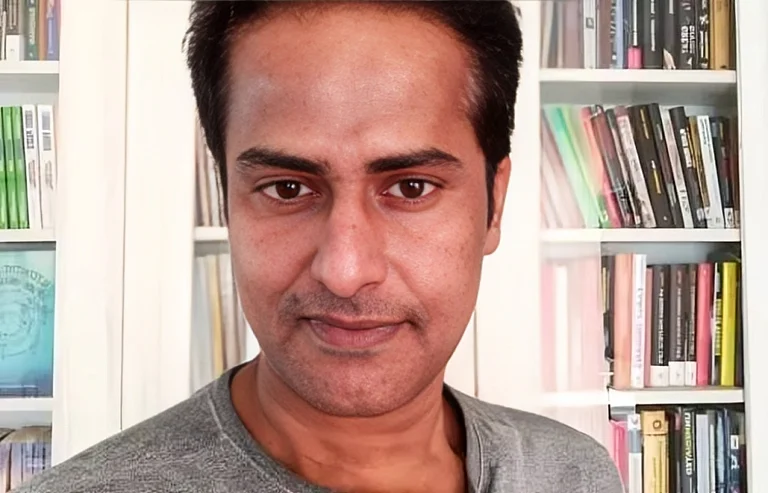"'High-caste men,' don't rape 'low-castewomen.'"
-- the verdict in the Bhanwari Devi case
Shivaani Chakravarti: Compared to what -- Israeli men? -- and towards which women?
Raji Pillai: Heavens. Another offensive generalization, and a far more dangerous one than the "macho" question.Not sure how that can be answered in 50-100 words. Violence towards women (and men) is a serious and tragicaffair, and it doesn't help to trivialize it with such a poorly formulated question.
Reeta Sinha: No. I doubt Indian men are more predisposed to violence toward women than any other group of men. It's awonderful stereotype, isn't it, though? Maybe one the media, the 'west' or perhaps even those who are tryingto help victims find handy?
And what about the Indian male, living in what seems to be constant fear of the jhaadoo, belan or chimta?What does this say about violence and Indian women? Hmmm?
P.V. Subramanian: I don't think Indians are a violent people by and large. You don't see the kind of senseless, inexplicableviolence in India you see elsewhere. But yes, women seem to be at the receiving end of most domestic violence,followed sadly by children.
Pauline Chitra Vellaichamy: Violence? And Indian men...naaaaah! They need to be more violent - toward their mama! Violence is a worldwidephenomenon just as relationships are.
Abraham Eraly: I have a friend who says that he never loses his temper -- except towards his wife and children! And in awarped way he makes good sense. One's wife and children are integral parts of one's life, and it's difficultto be tolerant of their failings, as one can be about the failings of others. Others don't matter; one'sfamily does.
Life is hard in India, and that vitiates domestic life. Family tension is particularly intense in thenuclear family. In the joint family, where the relationship between the husband and wife is only one thread ina complex web of relationships, there isn't much scope for domestic violence.
But domestic violence is not confined to men. In the slums near where I live, I often see men quakingbefore raging viragos. While men are prone to physical violence, women specialise in mental cruelty and verbalviolence.
Aman Gill: I would not think so. There is a long history of women as victims and male perpetrators across cultures. Butthe fact that Indian men are no less violent is a serious issue. Studies have shown that men across socialclasses, regions and economic strata hit women. One out of every three women has been physically abused in herhome. Culturally such actions are justified and socially it is ignored as "private family matter".
Kalyan Raman: Most tackily violent, yes. When they can get away with it, when there is zero prospect of resistanceor combat (as in, say, domestic violence or mob fury, or when Momma is watching approvingly)
Anasuya Mohanti: Men are more likely to be violent towards women than vice versa because society constructs masculinityaround ideas such as aggression, domination and control. Boys grow up to learn that violence is a manly way ofdealing with bad and achieving good. So when men are unable to assert these masculine qualities in the socialsphere, because of reasons such as low individual power in the work place, they are more likely to use theirself-assumed authority in the household and use violence to reassert their masculinity and deal with conflict.
Farrukh Dhondy: The evidence is contradictory. The second most popular crime for which Indians in the UK are jailed orpunished is wife-beating. Phoolan Devi on the other hand was someone who suffered violence and killed a lot ofmen as part of her retribution. If it can be statistically proved that Indian men are more violent towardswomen, the question for the statistician is begged " do the women deserve it?" Yes, yes, I know, this sortof joke is not funny and it only encourages, blather, blather….
(For how the above appears in the magazine, please click here.)


























